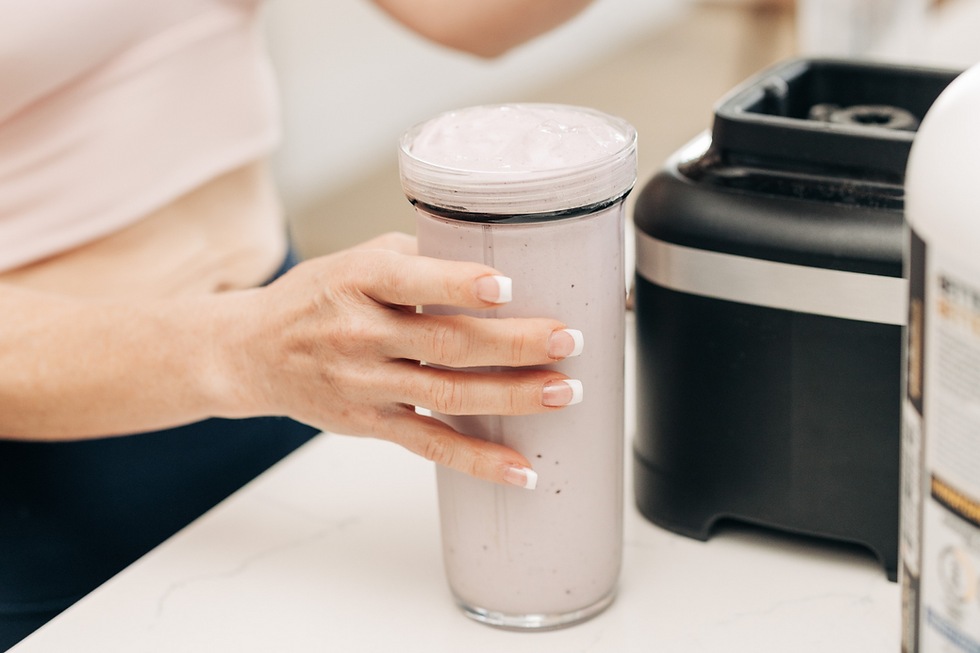Is it Time to Rethink Alcohol to Reduce Impact on Health?
- Brandi Smith
- Jan 30, 2024
- 3 min read
In January 2023, the Canadian Centre on Substance Use and Addiction (CCSA) released "Canada's Guidance on Alcohol and Health." In it, they modified their recommendations for alcohol consumption, reducing from no more than 10 standard drinks for women and no more than 15 standard drinks for men per week down to no more than two drinks per week for both women and men.

This is a big shift from the original guidelines released in 2011! So, should those that were having 10 standard drinks per week now suddenly drop their alcohol consumption to no more than two per week? That would be a dramatic change, so let's take a closer look at these new recommendations for some additional context.
Not all drinks are created equal
The amount of alcohol you consume depends on what you drink. To do an apples to apples comparison, keep in mind the standard drink would be:
12 oz/341 mL bottle of beer with 5% alcohol
5 oz/142 mL glass of wine with 12% alcohol
1.5 oz/43 mL glass of hard liquor with 40% alcohol
Each of these standard drinks contains approximately the same amount of pure alcohol.
The benefits of no alcohol and the risks of too much
This new recommendation is based on the latest research on the impact of alcohol on health. You can use the information from the CCSA to make your own decisions about consumption. Research shows that the risk of harm to your health due to alcohol consumption increases on a "continuum" as you increase your intake as follows:
Zero drinks per week: Not drinking at all as benefits, such as better health, sleep and hitting your fat/weight loss goals
Two standard drinks or less per week: You'll likely avoid alcohol-related harms for yourself or others at this level
Three to six standard drinks per week: Your risk of developing several types of cancer, including breast and colon cancer, increases at this level
Seven standard drinks per week: In addition to further increases in risk of cancer, your risk of heart disease or stroke increases significantly
Each additional standard drink per week: Radically increases the risk of alcohol-related consequences
Remember, there is no known safe amount of alcohol for pregnant women, and not drinking alcohol is the safest option when breastfeeding. Also, alcohol-related risks mentioned above are based on an average number of drinks per week. Binge drinking is another story—it can result in other harms such as car accidents and personal acts of violence.
Reap the rewards of reducing alcohol intake
It might be difficult to cut down on your drinking, especially if it's tied to your social activities or family get-togethers, so think about it in terms of what you can gain from making this change. Why not consider beverages that don't contain alcohol such as non-alcoholic beer, soda water with lime or mocktails.
By reducing the amount of alcohol that you drink, you can benefit from better weight and blood pressure, and a lower risk of cancer, abnormal heart rhythm, stroke, diabetes, inflammation of the pancreas (pancreatitis), and liver cirrhosis.
The truth about red wine
There was a time in the early 1990's when researchers believed that one or two glasses of wine a day might protect your heart. Further research has found that the relationship between red wine and the heart doesn't exist, or at the very least, the risks associated with drinking alcohol outweigh any small benefits that may be gained from drinking red wine. The bottom line: dont drink red wine for medicinal benefits.
When alcohol and medications don't mix
Alcohol can affect how certain medications work. In some cases, low blood pressure can occur when blood pressure medications are taken at the same time as alcohol. The effects of alcohol can add to the sedating effects of drugs used for anxiety or depression, such as sleeping pills and antidepressants, or certain antihistamines found in some cough and cold medications. Be sure to check with your pharmacist about the effects of alcohol on any new medications you're prescribed or plan on using, including herbal medications, and what you need to do to avoid harmful effects of combining them.
The bottom line
If you choose to drink alcohol, consider taking these new recommendations to heart and rethinking how much is right for you. Reduce your intake gradually and aim for one or two drinks a week to live healthier.




Comments